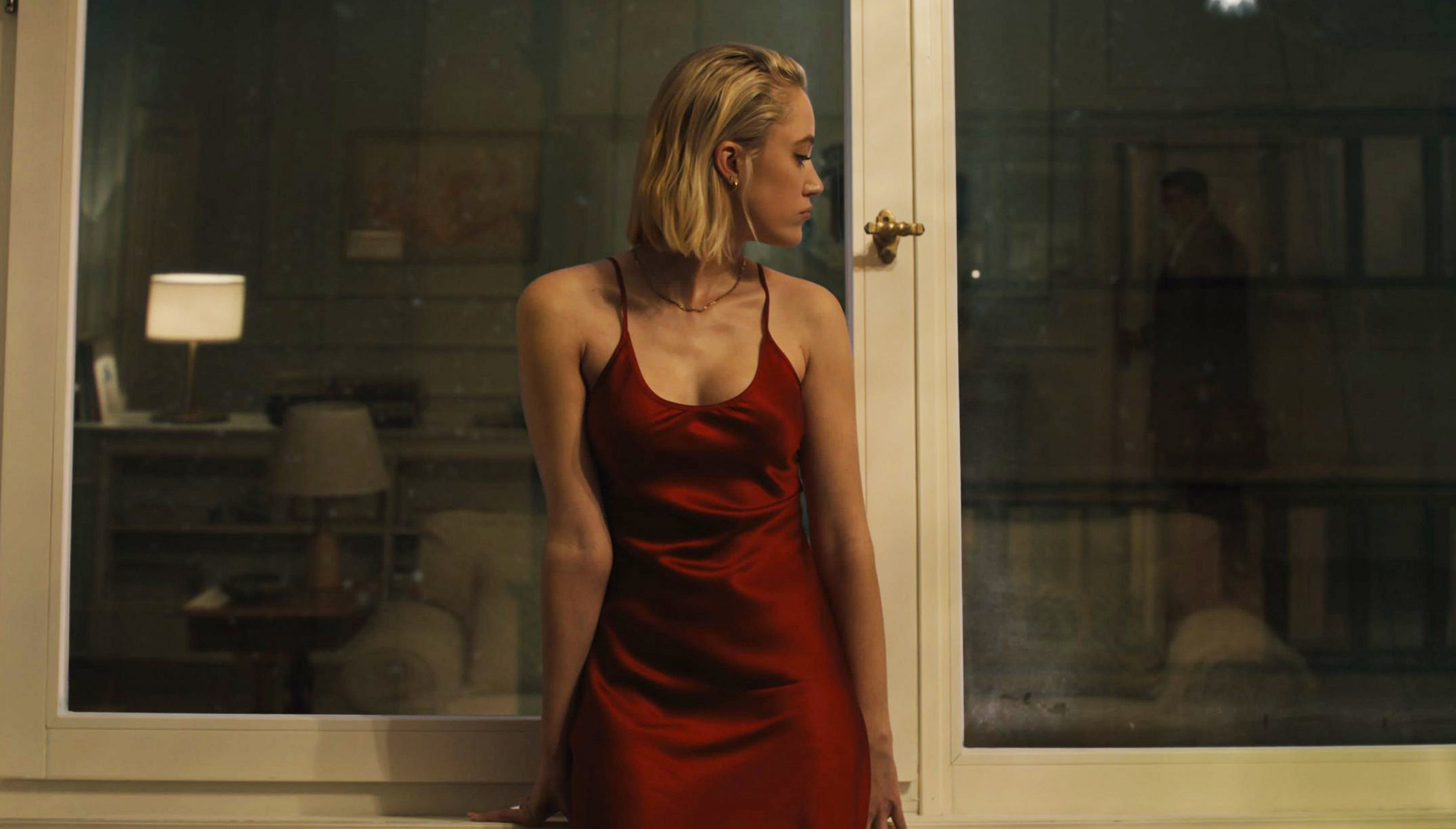
In her first attempt at directing a feature film Chloe Okuno creates a psychological thriller owing its influences to the work of legendary auteurs such as Alfred Hitchcock and Roman Polanski, generating suspense through the uncertainty that encircles the protagonist as she gradually becoming increasingly paranoid and obsessive over the existence of an obscure figure who is supposedly stalking her. Okuno has rewritten the screenplay of Zack Ford and succeeds in constructing an eerie film with minimal dialogue, featuring a story entirely focused on the protagonist, Julia, played handily by Maika Monroe who became wider known from David Robert Mitchell's 2014 supernatural thriller It Follows. The movie's essence and atmosphere hinges on the creator's play with the notion of ambivalence regarding the veracity of the protagonist's fears which are not acknowledged by the person closest to him, her husband who tries to be reassuring but ends being downright patronizing. The setting is the city of Bucharest where Julia moves permanently along with her life partner, Francis (Karl Glusman), as the latter finds a job there, the exact nature of which is never disclosed to the audience. Actually, the screenwriter offers virtually no background for the main characters, especially Julia for whom we only learn that she was an actress back in the U. S., but decided to quit as she wasn't cut for it.
The movie begins with the couple arriving in Bucharest and taking a cab to drive them to their new home. Francis, whose mother is Romanian, makes some half-hearted attempts at functioning as a guide and translator for Julia, but it is evident even in the first scene that is shot inside the cab that she feels as a complete stranger, and she understands that she will have to struggle in order to acclimate to the new environment. The language barrier proves to be the tougher to overcome and during her first days, Julia tries to learn some basic Romanian words and phrases to help her with her feelings of isolation. As she lets her gaze travel through the extravagant glass windows of her new apartment, she will discern a dark silhouette staring right at her from the adjacent building. From then on, Julia will lose herself in a downward spiral fueled by paranoia as she becomes haunted with the idea that she is being stalked by the nameless figure that watches her across the street. The fact that the city is terrorized by the horrid actions of a serial-killer nicknamed "The Spider" by the media and who targets young women, does nothing to alleviate Julia's angst that eats her from within in a way that threatens her overall mental stability. With no one else believing her, the protagonist will immerse into a nightmarish reality in which she never feels safe.
The story is built -almost exclusively- around Julia's character and Monroe does her best in her portrayal of a horrified young woman who begins to doubt her own sanity, without however managing to shake her irrational anxiety. The boundaries that separate the watcher and the watched are deliberately blurred by the director who instead of embracing the traditional perspective of the patriarchal male gaze objectifying the female body, adopts another point of view with the roles between the two constantly alternating to the point that the audience has to wonder to whom truly the title refers to. Is it the stalker of the neighboring building, played with a cold menace by Burn Gorman, or Julia herself? The story is told in a way that creates an ambivalence regarding the reliability of Julia's perspective, keeping us on the edge of our seats always second-guessing and trying to predict what will happen in the end. Unfortunately, the finale comes across as trite, succumbing in all the cliched tropes of the genre and leaving the audience with a rather bitter taste as the plot's build-up inclines us to hope that this is not another generic psychological thriller. Apart from that, the movie's tone and atmosphere are meticulously crafted, and the cinematography adds to the uncanny mood that pervades the story with the camera remaining fixed on Julia, who is present in almost every scene in the film and compels the viewer to identify with her point of view despite the reservations regarding the trustworthiness of her narrative outlook. We are bound to suspect at some point that perhaps it is Julia the one watching and stalking her unsuspecting neighbor.
It is true that Watcher could be a standout thriller that would be easily distinguishable among the vast number of the genre's silver screen productions but misses that chance by featuring a banal conclusion to the story that leaves much to be desired. Otherwise, it is a solid choice for the fans of this type of film as it is entertaining, well-acted and atmospheric. There are cinephile references scattered throughout the film, mainly to Alfred Hitchcock's classic Rear Window while in terms of the emotions that the movie provokes to the audience, Watcher is reminiscent of Roman Polanski's work, more specifically to his 1976 creepy The Tenant. If your expectations from the movie that you're about to see are not sky-high, then this one deserves a chance.